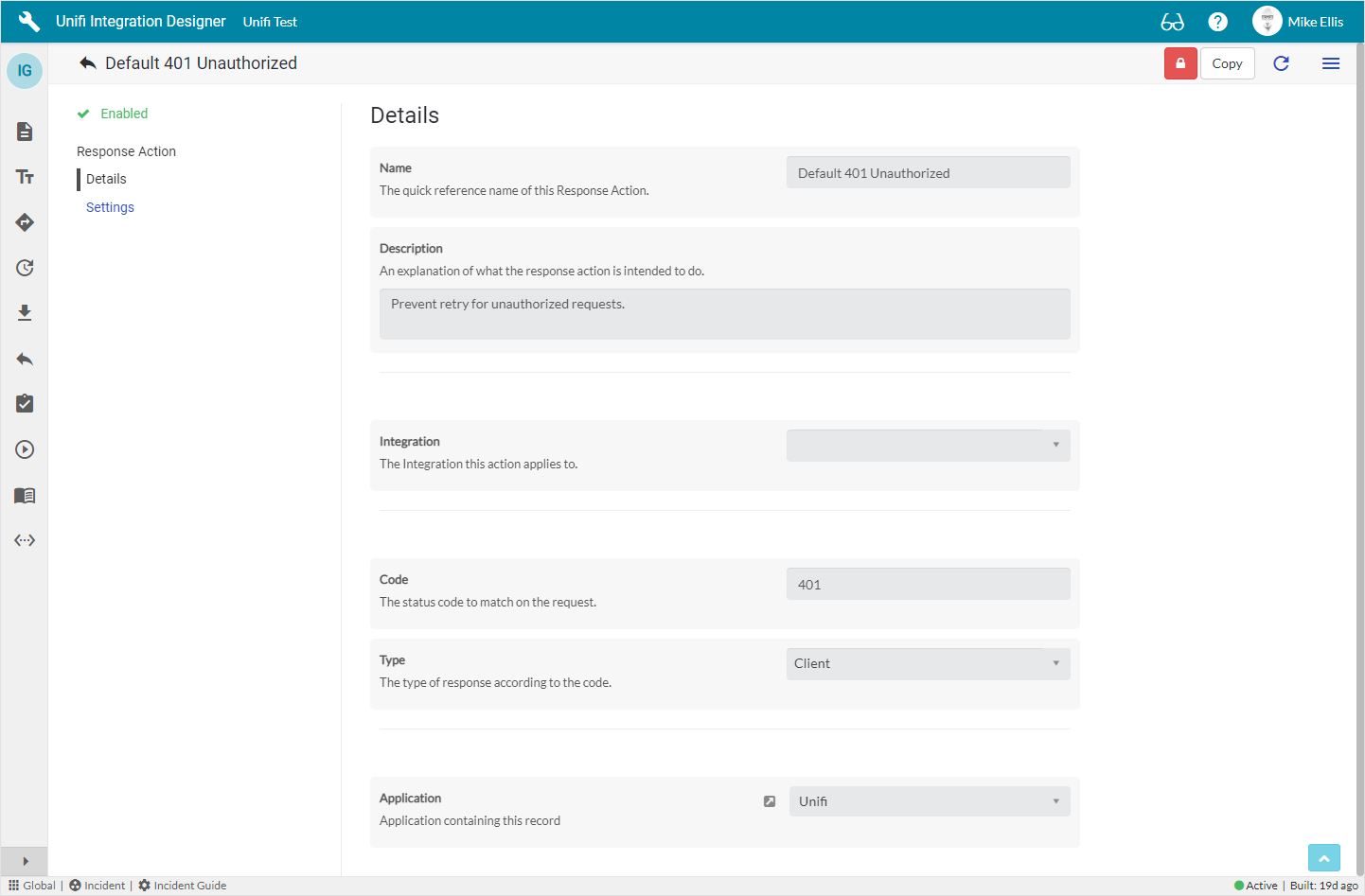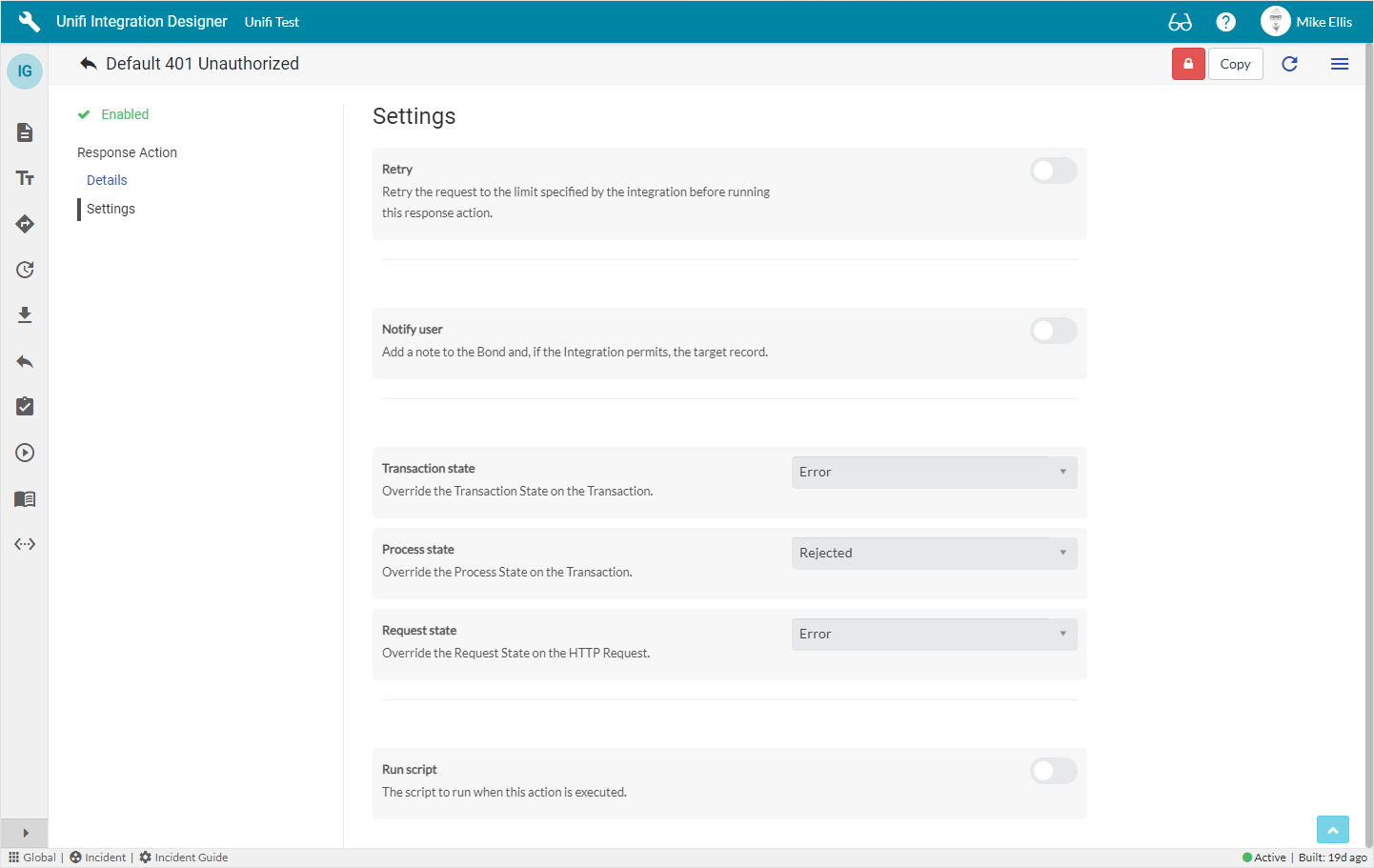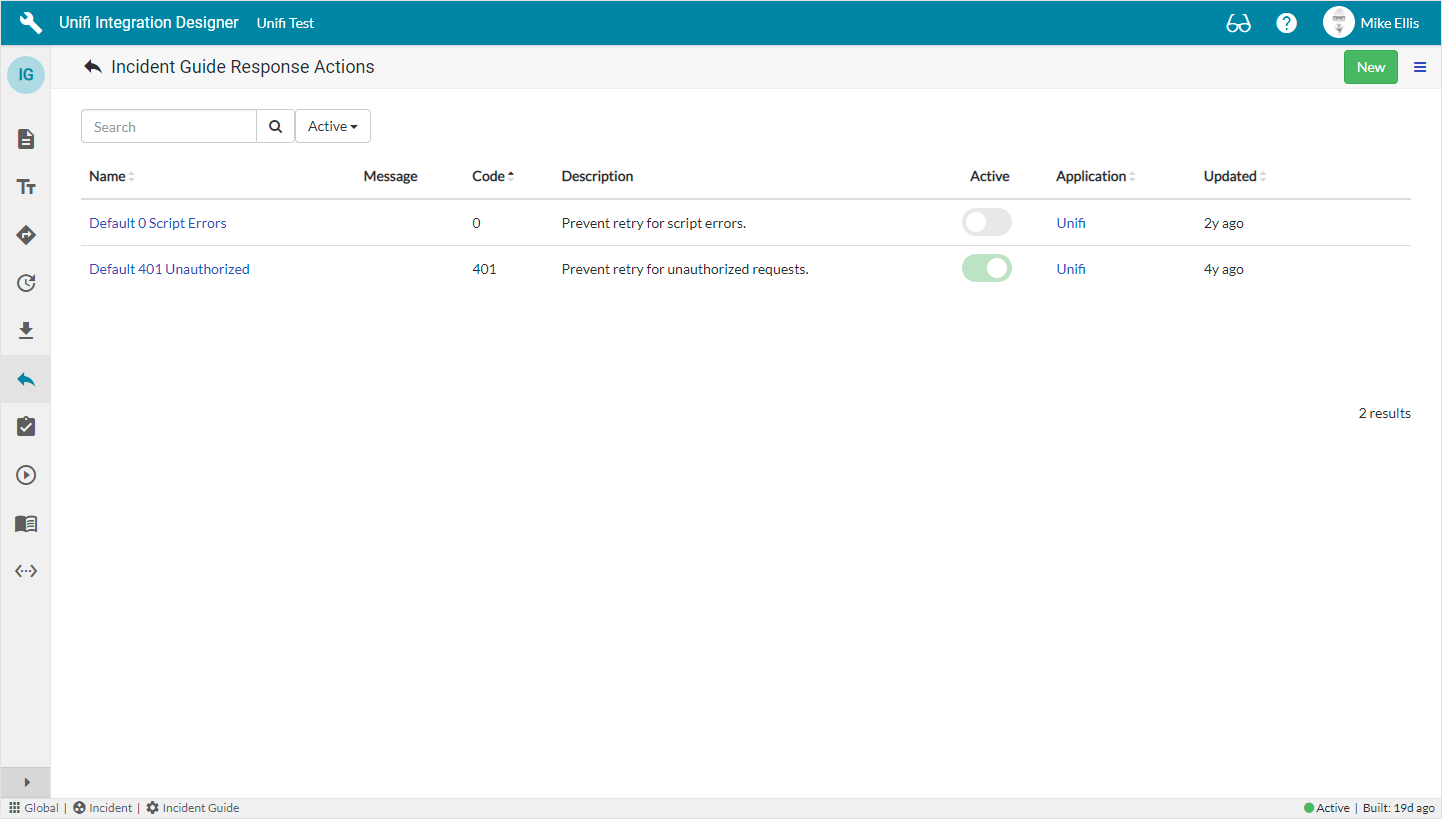Response Actions
Response Actions are interceptors that allow you to customise the way responses are handled.
By default, a successful request is determined by the response HTTP Code being in the info (1xx) or success (2xx) ranges and anything outside of these is treated as a request failure.
Sometimes, an API will return a response that needs to be treated differently to how it would normally be handled. For example, an API might return a 400 error to indicate a part of the request contains invalid data. We can use a response action to catch that error and do something about it.
Execution Flow
The Response Action executes the following steps:
Run retry logic. Retry logic takes precedence and will cancel the Response Action if possible. If no more retries can be made (or no retry is required), the Response Action is executed.
If no retry error has occurred, the request and transaction states are updated according to the Response Action.
Notify the user by adding an integration note. A note will only be added according to the notification script on the Integration.
If a script is specified, execute the script.
Response Action Fields
Details

The Details fields that can be configured for the Response Action record are as follows:
Name
String
The quick reference name of this Response Action.
Description
String
An explanation of what the response action is intended to do.
Integration
Reference
The Integration this action applies to.
Message
Reference
(Visible when Integration is populated). Only run this Response action for this message.
Code
String
The status code to match on the request. This could be 500 for a specific match or 5xx to match all 500 based errors.
Type
Choice
The type of response according to the code.
Application
Reference
Application containing this record.
Settings

The Settings fields that can be configured for the Response Action record are as follows:
Retry^
Boolean
Retry the request to the limit specified by the Integration before running this response action.
Notify user*
Boolean
Add a note to the Bond and, if the Integration permits, the target record.
Transaction state**
Choice
Override the Transaction State on the Transaction.
Process state**
Choice
Override the Process State on the Transaction.
Request state**
Choice
Override the Request State on the HTTP Request.
Run script***
Boolean
The script to run when this action is executed.
^Retry
When selected, an additional Advanced retry boolean type field becomes available (which if selected, also reveals another additional Retry script field in which to configure any scripted method of retrying).
*Notify user
When selected, an additional Notify message string type field becomes available in which to enter the required notification text.
**Transaction/Process/Request state
When ’–None–’ is selected, the state is left as is and not overridden.
***Run script
When selected, an additional Script field becomes available in which to configure any scripted method of executing the Response Action.
Active

The Active field can be configured for the Response Action record as follows:
Active
Boolean
Enable/Disable this action.
This flag is actually set via the Enable/Disable buttons that are available on the editable action.

Was this helpful?
